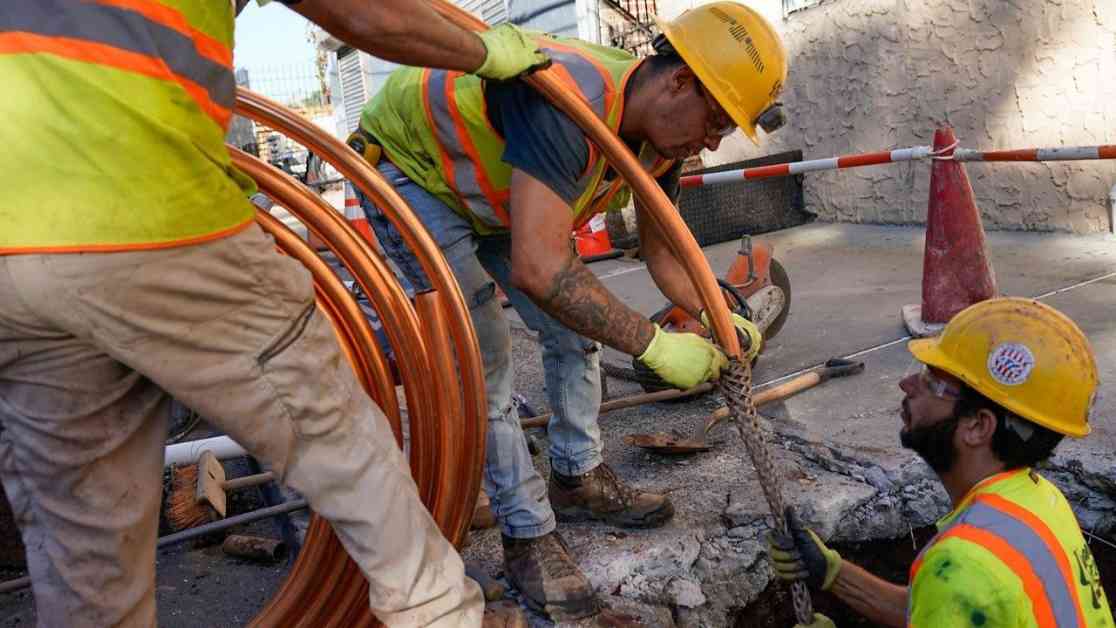New York State Receives $90M in Grants to Upgrade Water Infrastructure
New York State has been awarded nearly $90 million in grants to enhance drinking water infrastructure by replacing lead service lines in various communities. Governor Kathy Hochul made the announcement on Friday, highlighting the importance of improving water quality and safeguarding public health.
The funding, part of the federal Bipartisan Infrastructure Law passed in 2021, will support lead service line replacement projects in several cities and villages across the state. Lead service lines, common in older buildings constructed before 1986, pose a significant health risk as lead can leach into drinking water when pipes corrode.
Communities Receiving Funding for Lead Service Line Replacement
The breakdown of the communities receiving grants and their allocated funding is as follows:
– New York City (Bronx, Brooklyn, and Queens): $28,000,000
– City of Rochester: $28,000,000
– City of Syracuse: $12,756,047
– Village of Herkimer: $3,962,616
– City of Albany: $3,859,328
– City of Troy: $3,846,900
– Gloversville Water Works: $2,310,445
– Village of Ilion: $1,221,477
– Village of Ogdensburg: $688,300
– Village of Bath: $468,300
– Village of Catskill: $106,545
These communities will benefit from the funds allocated for lead service line replacement, ensuring safer drinking water for residents and future generations. Governor Hochul emphasized the importance of addressing water infrastructure issues to protect public health and safety.
State Efforts to Improve Water Quality
Governor Hochul’s administration is committed to addressing water quality concerns across the state. The New York State Department of Health is utilizing $1 million from the Bipartisan Infrastructure Law to provide engineering and technical assistance for lead service identification in several communities, including Clayton, Diana, Lake Luzerne, New Berlin, Sackets Harbor, Kinderhook, Millerton, New Paltz, Ravena, and Rutland.
In addition to the recent grants, the state’s Lead Service Line Replacement Program has already invested $30 million in identifying and replacing lead service lines statewide. These efforts demonstrate New York’s proactive approach to improving water infrastructure and protecting public health.
Impact of Lead Contamination on Public Health
Lead contamination in drinking water can have serious health consequences, particularly for children and pregnant women. Even low levels of lead exposure can lead to developmental delays, learning disabilities, and other long-term health issues. By replacing lead service lines and upgrading water infrastructure, New York State aims to mitigate the risks associated with lead contamination and ensure safe drinking water for all residents.
Governor Hochul reiterated the importance of investing in water infrastructure to protect public health, stating, “When it comes to New York’s water infrastructure, we’re getting the lead out. Keeping New Yorkers safe is my top priority, and by giving communities the support needed to replace lead service lines, we’re helping to safeguard public drinking water for generations to come.”
Looking Towards a Safer Future
As New York State continues its efforts to improve water quality and infrastructure, the grants allocated for lead service line replacement mark a significant step towards ensuring safe and clean drinking water for all residents. By investing in upgrading water systems and addressing lead contamination, the state is prioritizing public health and safety for current and future generations.
In conclusion, the funding provided through the Bipartisan Infrastructure Law will enable communities across New York to replace lead service lines, reducing the risk of lead contamination in drinking water and protecting the health of residents. Governor Hochul’s commitment to addressing water infrastructure challenges underscores the state’s dedication to ensuring safe and reliable drinking water for all New Yorkers.

